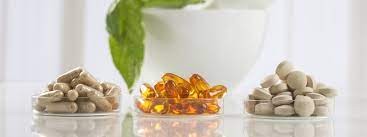
Breaking News
 Three US F-15s Downed Over Kuwait As Iran War Spirals, Reports Of 'Paranoia, Anxiety' At Pen
Three US F-15s Downed Over Kuwait As Iran War Spirals, Reports Of 'Paranoia, Anxiety' At Pen
 AI Just Blew A Hole Through The Job Market - Jack Dorsey Pulled The Trigger First
AI Just Blew A Hole Through The Job Market - Jack Dorsey Pulled The Trigger First
 Feeding humans costs too much - When Capital Declares Humanity a Waste Product
Feeding humans costs too much - When Capital Declares Humanity a Waste Product
 Catherine Fitts: Epstein, CIA Black Budget, the Control Grid, and the Banks' Role in War
Catherine Fitts: Epstein, CIA Black Budget, the Control Grid, and the Banks' Role in War
Top Tech News
 US particle accelerators turn nuclear waste into electricity, cut radioactive life by 99.7%
US particle accelerators turn nuclear waste into electricity, cut radioactive life by 99.7%
 Blast Them: A Rutgers Scientist Uses Lasers to Kill Weeds
Blast Them: A Rutgers Scientist Uses Lasers to Kill Weeds
 H100 GPUs that cost $40,000 new are now selling for around $6,000 on eBay, an 85% drop.
H100 GPUs that cost $40,000 new are now selling for around $6,000 on eBay, an 85% drop.
 We finally know exactly why spider silk is stronger than steel.
We finally know exactly why spider silk is stronger than steel.
 She ran out of options at 12. Then her own cells came back to save her.
She ran out of options at 12. Then her own cells came back to save her.
 A cardiovascular revolution is silently unfolding in cardiac intervention labs.
A cardiovascular revolution is silently unfolding in cardiac intervention labs.
 DARPA chooses two to develop insect-size robots for complex jobs like disaster relief...
DARPA chooses two to develop insect-size robots for complex jobs like disaster relief...
 Multimaterial 3D printer builds fully functional electric motor from scratch in hours
Multimaterial 3D printer builds fully functional electric motor from scratch in hours
 WindRunner: The largest cargo aircraft ever to be built, capable of carrying six Chinooks
WindRunner: The largest cargo aircraft ever to be built, capable of carrying six Chinooks
Healthy Additions for Your Heart

Inflammation has been shown to play a major role in most chronic illnesses, including neurodegenerative, cardiovascular, pulmonary, metabolic, autoimmune and neoplastic (cancer) diseases.
For centuries it has been known that turmeric exhibits anti-inflammatory activity, but extensive research performed within the past two decades has shown that the activity of turmeric, a member of the ginger family, is due to curcumin. Turmeric comes from the root of a perennial plant that is difficult to grind; hence, it is usually sold as a powder. Curcumin, the active component of turmeric, is what gives turmeric its yellow hue.
Curcumin: A Big Deal
Curcumin is a powerfully rich antioxidant and anti-inflammatory that positively affects every organ in the body. Curcumin has been found to be protective against more than 70 conditions, including type 2 diabetes, Alzheimer's disease, and cancer. Studies have shown that curcumin is more effective in reducing inflammation than aspirin and ibuprofen, more effective in suppressing breast cancer recurrence than tamoxifen, and is more potent than Vitamin C or Vitamin E as an antioxidant. Its effects on cardiovascular disease (CVD) are profound.
Is it any wonder that the American diet, loaded with sugar and salt and lacking in nature's herbs and spices, has perhaps the highest incidence of CVD in the world?
More on Curcumin
Comprehensive research suggests curcumin's effects against CVD take place through several different mechanisms, but primarily through the modulation of a cytokine called NF-kB (pronounced NF-kappa-beta.) NF-kB activation is a major mediator of inflammation in most chronic diseases (including cancer), and inhibition of NF-kB can prevent or resolve many chronic diseases.
Curcumin has strong artery-protecting effects. Atherosclerosis is characterized by vascular inflammation and lipid accumulation within the vessel wall. It has been shown in animals to lessen fatty plaques, lower LDL (bad; inflammatory) cholesterol, and helps regulate blood pressure. It can reduce the size of blood clots after a hemorrhagic stroke and can improve circulation in the brain after a stroke or traumatic brain injury.

 RNA Crop Spray: Should We Be Worried?
RNA Crop Spray: Should We Be Worried?

